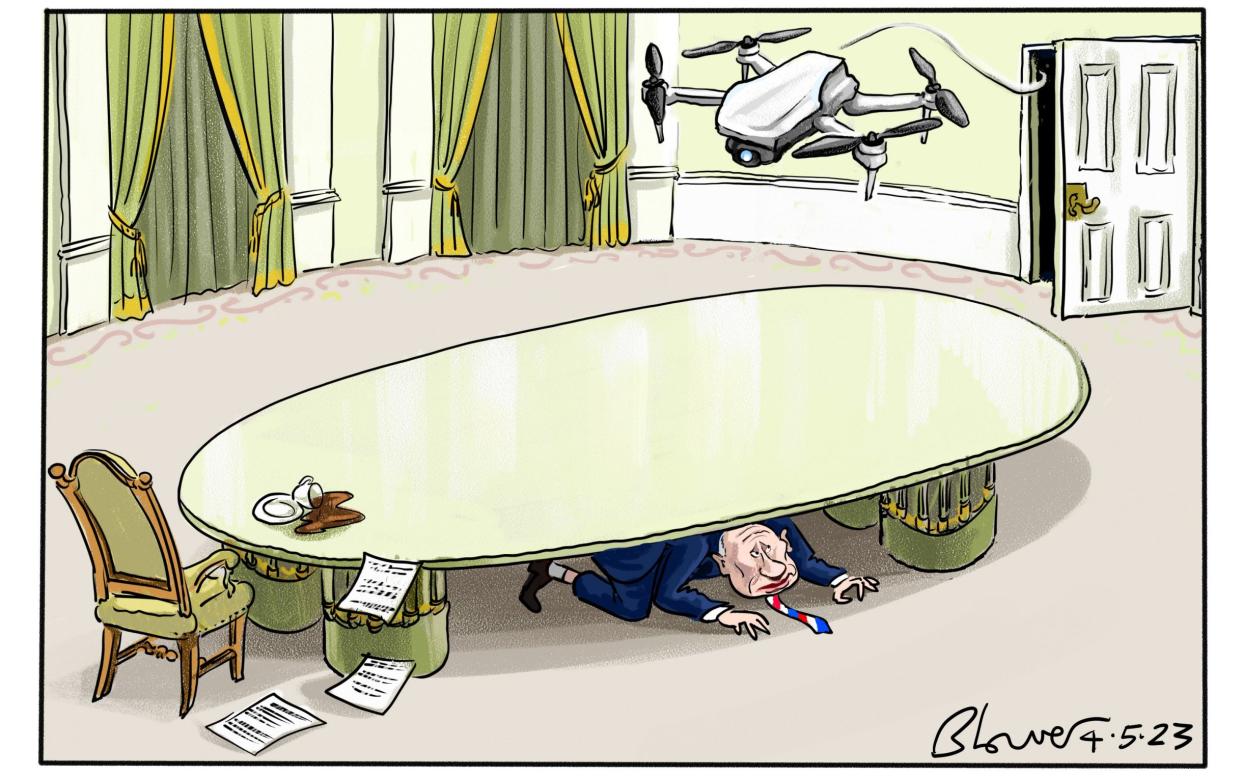Fake or not, the Kremlin attack is extremely humiliating for Putin

- Oops!Something went wrong.Please try again later.
The image of an explosion on the roof of the Kremlin, with a huge banner advertising Russia’s May 9 Victory Day parade visible on the ground beneath, will be one of the most embarrassing pictures from all the years of Vladimir Putin’s regime.
Regardless of who was responsible and what their motivation was, it is a very significant image that will forever after be burned into Moscow’s history.
It is entirely unclear who was responsible; Ukraine’s swift denial in no way makes the task of attribution easier.
Some have suggested it is a “false flag” attack orchestrated by the Kremlin to justify further atrocities. They point to the way news was released and amplified on state-aligned channels. But there are certain impacts the attack will have, no matter who or what is finally revealed to be behind it.
Focus on what we know, or what we are being asked to believe.
We are being presented as fact the idea that something got through the many layers of Russian air defences surrounding Moscow.
As recently as January this year, reports from the Russian capital showed Pantsir (and possibly the highly sophisticated S-400) air defence systems being deployed on the rooftop of Russia’s Ministry of Defence in central Moscow and the Education department, located around 2km away.
Even if this was a plot dreamt up in the Kremlin, the idea that anybody in the nation’s capital, including the president, could be vaporised in an instant due to an incompetent air defence network will play on Russian minds.
Putin may have concocted this charade as a way of ensuring a soft landing for any announcement of full mobilisation for the war.
But there are less embarrassing ways to whip up national hysteria - a car-bomb at the Kremlin, say, or even a Ukrainian “terrorist attack”.
If this was indeed a “false flag”, Putin is playing with fire.
A panicked and angry public will be difficult to quell, having endured a year of this very special military operation, and having seen the Moskva, the flagship of the Black Sea Fleet, sent broken to the sea bed, among other Ukrainian successes.
The response from the US will be illustrative. The idea of Ukraine striking beyond its borders has long made officials nervous in Washington.
If this was a Ukrainian attack, having developed a fleet of precise long-range drones, and they didn’t explain to the US their intentions in advance, that could prove to be a diplomatic faux pas by Volodymyr Zelensky.
But he is a skilled political operator and would have seen the risk of inviting opprobrium from his biggest military donor. He may have considered a strike on the Kremlin, even if it had a very low chance of assassinating Putin himself, as a significant enough propaganda coup to be worth an argument with Washington.
Regardless of who is behind the attack, we are invited to believe Russia’s air defence network is so incompetent as to be incapable of preventing a strike at the heart of the nation’s capital.
That is an extraordinary thought, and a national humiliation for Russia.

